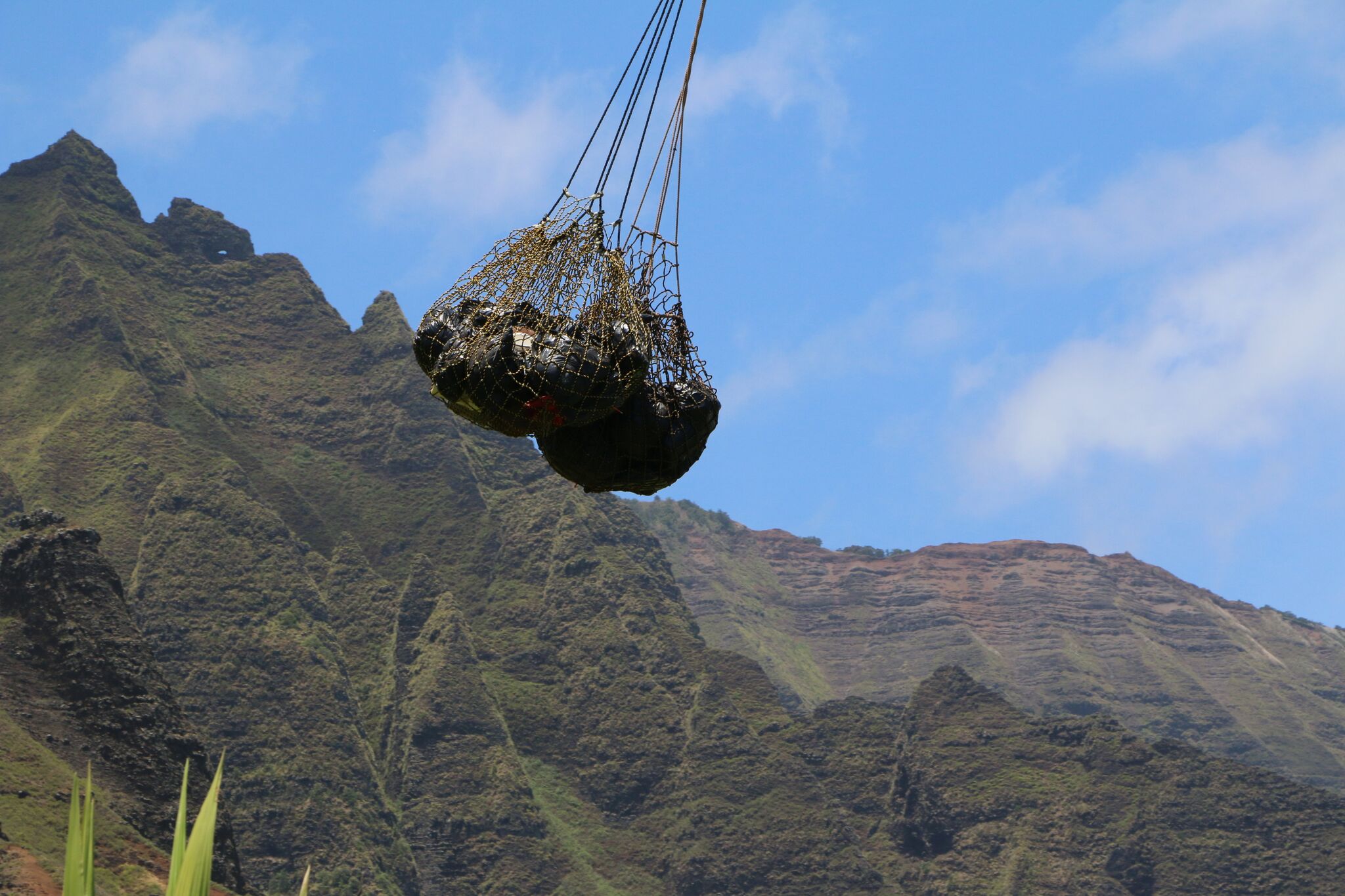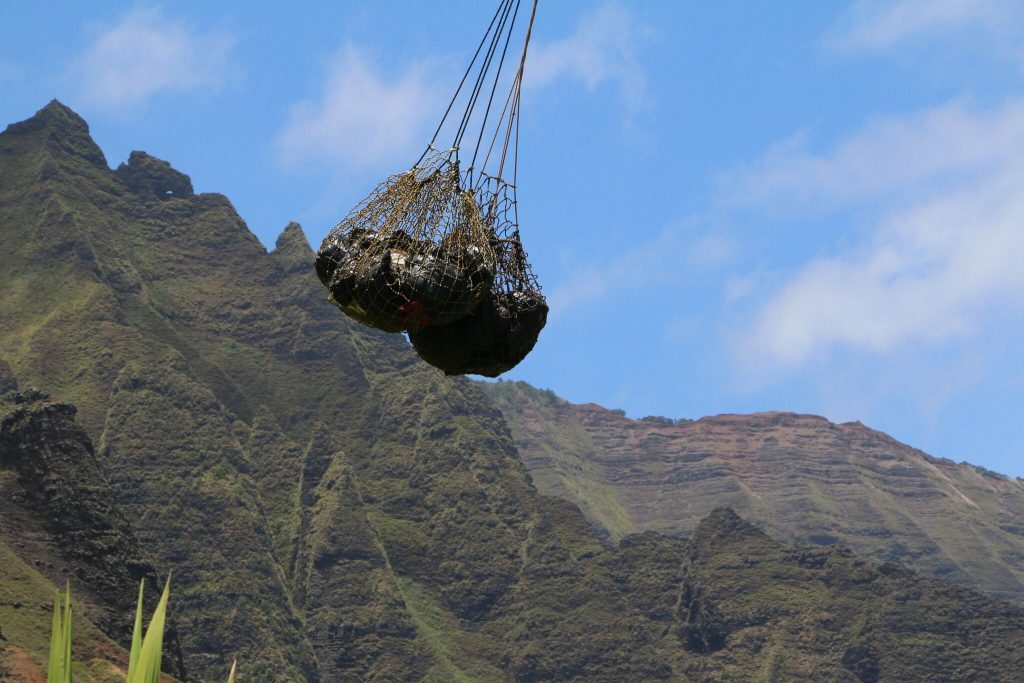Napali Coast State Wilderness Park Showing Recovery and Improvement
Posted on Jul 5, 2017 in Announcements, sliderDEPARTMENT OF LAND AND NATURAL RESOURCES
News Release
| DAVID Y. IGE GOVERNOR |
SUZANNE D. CASE
CHAIRPERSON |
For Immediate News Release July 05, 2017
NAPALI COAST STATE WILDERNESS PARK SHOWING RECOVERY AND IMPROVEMENT
Update on Clean-up and Enforcement Efforts
(Honolulu) – A three day operation last week in the Kalalau section of Kauai’s Napali Coast State Wilderness Park resulted in additional arrests and the dismantling of large, illegal camps in Kalalau Valley.
DLNR Chair Suzanne Case commented, “Our Divisions of State Parks and Conservation and Resources Enforcement (DOCARE) are continuing to work together to restore lawfulness to Napali and address the natural and cultural resources damage created by long-term squatters and their illegal camps. These sustained efforts began more than two years ago and are beginning to pay off. Every week we receive correspondence from people who’ve legally hiked into Kalalau and are commenting on how clean the area is and how the number of illegal camps and campers are greatly diminished.”
State Parks Assistant Administrator Alan Carpenter and archaeologist Sean Newsome conducted a rapid reconnaissance of cultural sites in Kalalau Valley a week before the combined clean-up and enforcement operation. Carpenter said, “In my 25 years of visiting Kalalau this is the cleanest I’ve ever seen it in terms of rubbish and illegal campers. The degradation to cultural sites is at an all-time high, however, because those impacts are cumulative, representing decades of abuse. Reversing those impacts and restoring sites is a future goal, requiring a combination of documentation, compliance, staffing and community stewardship. Clearly there is additional work to do to protect the important cultural resources and natural resources in this pristine area, but I’m heartened that the keen focus on Kalalau is definitely showing an improved experience for permitted visitors, who are generally not responsible for the degradation of Napali resources.”
A sure sign of improvement and the fact that the no-tolerance for illegal activity “word” is getting out, several DOCARE Officers report that in every contact they made along the trail, hikers had the required state permit. It is required for travel beyond the two-mile marker at Hanakapiai Stream and allows camping only designated camping areas such as the one at Kalalau Beach. During previous enforcement visits to the wilderness park, officers arrested dozens of people for failing to produce a permit.
DOCARE officers arrested six people for closed-area violations. They also eradicated eight young marijuana plants from an abandoned campsite. Squatters have also established elaborate gardens where they’re growing bananas, papaya, taro and other fruits. Officers provided support for a State Parks maintenance team, which removed 15 large illegal camps, plus additional smaller ones and gear stashes. Two and a half tons of rubbish was airlifted by a helicopter in 15 sling loads. Seven State Parks staff and between six and twelve DOCARE officers were involved daily during last week’s operation.
“These combined operations are logistically complex, costly and deplete operational funds that could be applied at other state parks,” said State Parks Administrator Curt Cottrell. “A critical method to enhance public safety, protect significant historic features and to ultimately insure the quality of the wildness experience is to create permanent staff with specific equipment for Kalalau. Dedicated staff will have communication access to deter the return of illegal camping and insure authorized limits, helping eliminate the overuse of composting toilets, provide additional campsite and trail maintenance service on a daily basis, direct campers to the authorized camping areas, further inform campers about on site safety issues and the sensitivity and history of cultural sites, and support both hikers and kayakers who may sustain injuries in this remote and unique wilderness destination,” Cottrell added.
The Division of State Parks is expected to renew its request to the 2018 Hawai‘i State Legislature to provide funding for full-time staff to support the management of Hawai‘i’s largest and most remote state park.
Media Contact:
Dan Dennison
Senior Communications Manager
Communications Office
Dept. of Land and Natural Resources
Phone: (808) 587-0407


